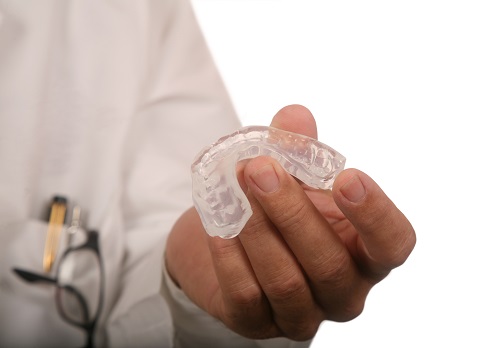
Our teeth are incredibly resilient little bones that protrude out and allow us to communicate. Our teeth allow us to smile, while also allowing for proper communication and intonation when we speak. Our teeth also aid in chewing the food we eat. Through all this chewing and usage, our teeth experience wear. This wear can be harmful over time. This all happens during the day, but for many it continues into the night. Today we discuss night guards and their function.
WHO NEEDS ONE, WHAT DO THEY DO?
For many, mornings are a rough and sore sensation. What many people experience involves sore and sensitive teeth. The importance of consistent routine checkups may allow for us to detect any signs of bruxism. Bruxism refers to the overtightening of the jaw such that teeth begin to grind and cause damage. This is unideal because the teeth, over time, could sustain further damage that requires more extensive treatment.
Nightguards are incredibly similar to traditional mouthguards in that they are there to protect your teeth. Nightguards are thick and designed to work with the bruxism such that instead of wearing down your teeth significantly, now it is simply a gradual wear for the night guards.
The benefits to a nightguard continue on from there. For people who struggle with temporomandibular joint syndrome, night guards have been helpful in preventing any unnecessary movement or next morning discomfort.
Bruxism and temporomandibular joint syndrome can be quite cumbersome to live with, but night guards may just help reduce the effects significantly. If you clench your jaw and grind your teeth at night, or wake up sore in the jaw and neck from seemingly nothing, it is worth looking into. If you have any questions regarding night guards, or if you simply have a general inquiry, please feel confident in contacting our staff.


